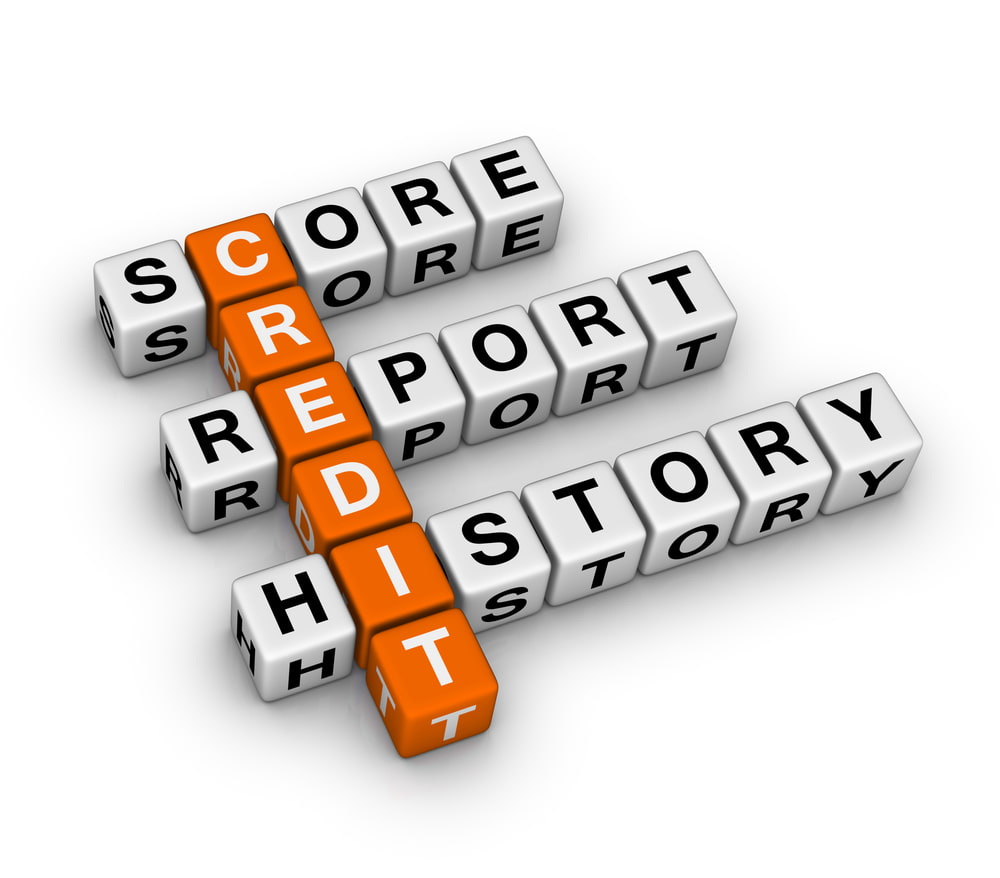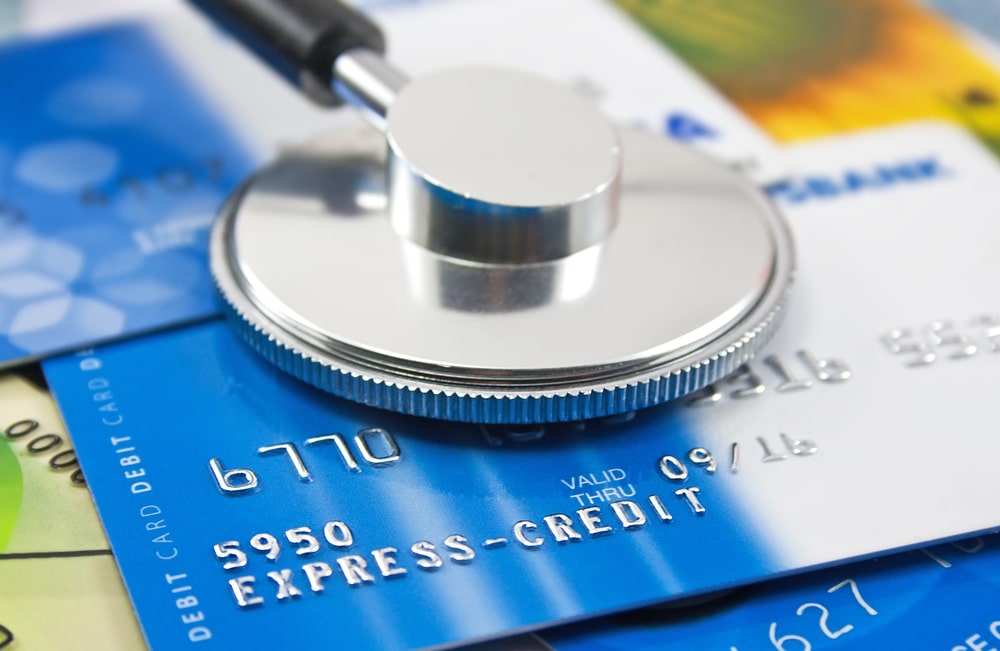Key Takeaways
If you have bad credit or no credit at all, the dream of achieving the perfect credit score can seem unobtainable. The good news is that building credit can take as little as six months. If you have bad credit, the bad news is that it can potentially take longer.
No matter which end of the spectrum you land on, if you’re asking “how long does it take to build credit”, here’s everything you need to know.
How Long Does It Take To Build Good Credit?
Building good credit can take as little as six months if you’re starting from scratch. That’s how long it takes to establish a long enough history to obtain a FICO credit score. A FICO score can range from 300 to 850, and anything over 700 is considered “good,” while a score higher than 800 puts you in the top tier of borrowers.
In order to establish a history, you’ll need to have some kind of borrowing and payment activity. This can mean six months of regular payments on a student loan, six months of on-time credit card payments, or any other debt repayment, such as a car loan.
Your score will quickly rise as long as you consistently pay your bills and don’t take out too much debt. Keep in mind, though, that you can damage your credit score even faster. If you’re more than 30 days late on a single payment, it can take a huge chunk out of your score.
[ Thinking about investing in real estate? Register to attend a FREE online real estate class and learn how to get started investing in real estate. ]

What Should You Focus On To Build Your Credit Score?
Five factors go into determining your FICO credit score. These are:
-
Payment history (35% of score). Payment history is exactly what it sounds like. Every time you pay a bill on time, this part of your score goes up. Making late payments will cause this part of your score to go down.
-
Credit utilization (30%). Credit utilization is how much of your available credit you’re using. For example, if you run up $100 in charges on a card with a $1,000 limit, your credit utilization will be 10%. As long as your credit utilization is 30% or lower, you’ll receive full marks on this part of your score.
-
Length of credit history (15%). Long-standing accounts will impact your credit history more than more recent accounts. Having a short history won’t keep you from having a high score, but a longer, positive history is even better.
-
New credit (10%). Having a recently-opened account can boost your score, but only to a point. Keep in mind that most credit applications require a hard check. This negatively impacts your score, especially if you’re applying for multiple cards.
-
Type of credit (10%). Having multiple types of debt, like a credit card and a car loan, is better than having the same amount of debt on one credit account.
In a nutshell: to build your credit score, you want to have a moderate amount of debt and consistently make your payments on time.
How To Start Building Credit In 5 Steps
Establishing good credit can feel like a Catch-22. You need a credit score to get credit, but you need to take on debt to build that score to begin with. Thankfully, there are a few ways out of this pickle.
1. Open A Secured Credit Card
One of the easiest ways to build credit is by using a secured credit card. A secured credit card is easier to qualify for than a traditional card, because you have to put down a security deposit. If you fail to make a payment, the balance is taken from your deposit, instead. In some cases, your credit limit will be equal to the deposit, while in others, your deposit will only be a portion of the card’s limit.
Regardless of which card you choose, make sure they report to all three of the major credit bureaus. These are Equifax, Experian, and TransUnion. A card that doesn’t report to all three won’t be as effective for raising your score.
2. Get A Credit Builder Loan
Another way to build credit is to use a credit-builder loan. In a credit-builder loan, you don’t get your money right away. Instead, the lender puts your money into a savings account, while you pay back the loan, plus interest. When you’ve fully repaid the loan, the lender will transfer your money from the savings account to you, including any interest it’s accrued.
To be clear, you’ll actually lose money with this type of loan. The interest you pay to the lender will be more than any interest you gain from the savings account. Even so, you’ll establish credit, provided your lender reports to all three credit bureaus.
3. Become An Authorized User On A Credit Card
If you’d rather not open your own credit account right away, you can always get added to someone else’s account. Ask a relative or friend and see if they’re willing to make you an authorized user on their account. Keep in mind that this will only work if the person who’s adding you makes regular payments, so make sure they have good credit before you try this method.
4. Take Out A Loan With A Co-signer
Asking someone to co-sign for you is similar to having them add you to their card, because you can take advantage of their credit score. If a relative or friend with good credit will co-sign for you on a loan, you can get approved for a loan you otherwise wouldn’t qualify for. Just make sure to make your payments on time; if you don’t, your co-signer will be held responsible for making those payments.
5. Continue Good Credit Habits
Once you’ve already opened an account or taken a loan, continue making on-time payments, and your score will continue to rise. Remember that on-time payments remain on your record forever, so it can be a good idea to keep a credit account open, even if you don’t need it at the moment. Eventually, you’ll qualify for better cards with better rewards.
How To Maintain A Good Credit Score
Let’s say you’ve successfully built good credit, and you want to maintain it. Or maybe you have bad credit, and you want to bring your score back up. Here are some ways to maintain a good credit score after you’ve already established credit.
Keep Track Of Your Credit Reports
The first step to maintaining your credit is knowing where you stand. In the US, everyone is entitled to a free annual copy of their credit report from all three major bureaus. You can access this report for free at AnnualCreditReport.com, or through any number of credit-reporting services.
Only Charge What You Can Afford
Good spending habits are an essential part of building good credit. Remember that credit cards are meant to be a tool for making life easier. Ideally, you should never charge more than you can afford to pay off at the end of the month. This won’t just prevent you from getting into more debt – it will also keep your credit utilization low, which is better for your score.
Pay Your Bills On Time
Remember: your payment history is the number one factor that affects your credit score. Make sure to pay all your bills on time, and whatever you do, never make a payment more than 30 days late. After 30 days, the late payment can be reported, and severely damage your score.
Pay More Than The Minimum
Let’s say you’re already in debt, and owe more than you can pay in a month. What do you do now? In that case, pay as much as you can afford to pay. If you only make the minimum payment, it could take years for you to get out of debt. Meanwhile, you’ll be paying more in interest in the long term.
Only Apply For A New Credit Card If You Need It
The bank will run a hard check on your credit score whenever you apply for a credit card. This causes your score to drop by as much as five points. This will disappear after a few months of on-time payments, and your score will continue to rise. But if you’re constantly applying for cards out of curiosity, you can do significant damage to your score.
Don’t Close Any Credit Card Accounts
Unless your card charges an annual fee, there’s really no need to get rid of a card you’re not using. Having an open account will show that you have access to credit already, and lowers your credit utilization. Meanwhile, all your on-time payments will continue to impact your score positively.

How Long Does It Take To Build Credit: FAQs
That just about covers the basics, but there are a few things we should clear up before we finish. Here are some of the most common questions about building your credit.
What Credit Card Do You Start With?
If you have no or poor credit, you’ll need to start with a card with a low credit limit, most likely a secured card. Once you’ve made several months of payments and established a track record, you can start shopping for a better card.
How Long Does It Take For A New Credit Card To Affect Your Credit?
Different card companies will report your payments at different times. That said, most of them will report once a month at minimum. That said, a single on-time payment isn’t usually enough to move your score right away. It will usually take a few months of payments before your score goes up.
How Long Does It Take To Recover From A Hard Inquiry?
The record of a hard inquiry will last for up to a year. However, if you’ve opened an account and made your payments on time, your score will only take a few months to recover. After that, it will even be higher than it was before.
Do Any Other Bills Build Good Credit?
There are a couple of ways to build credit without taking on any debt. One way is to sign up for Experian’s utility payment program. Once you sign up, your power, gas, phone, and internet bills will count towards your credit score. Unfortunately, this won’t have any impact on your Equifax or TransUnion scores, so some lenders may not see it.
Your landlord may also report rent payments through a third-party service like PayYourRent or RentTrack. This will be free if your landlord subscribes to one of those services, and your rent payments will count towards your credit score. If your landlord doesn’t subscribe, you can still use the services, but you’ll have to pay a fee.
Summary
Building a good credit score takes time and commitment. You need to have the discipline to make your payments on time, and not to borrow too much. Asking “how long does it take to build credit” is the first step, and by following the rest, you can eventually achieve the high credit score you deserve.
Ready to start taking advantage of the current opportunities in the real estate market?
Click the banner below to take a 90-minute online training class and get started learning how to invest in today’s real estate market!


